By Sofia Figueiredo, Luis Fernando Durán Armenta and Rita Vilaça
One week ago, we hosted the fifth edition of the PhasAGE Training School which took place at the Vrije Universiteit Brussel (VUB), part of the Vlaams Instituut voor Biotechnologie (VIB). The event was organized by Peter Tompa, one of the core team members of the PhasAGE project, and his research group.
The focus of this Training School was to explore advances and applications of Databases and Computational Tools on Phase Separation. The selected participants, mainly PhD candidates, received multidisciplinary training to gain practical experience in applying databases, in silico resources, and computational tools to query relevant biological data and analyse it in context.
The scientific program included both theoretical and practical lessons by leading experts in the fields of LLPS, IDPs, and aggregation.
Our invited speakers and trainers come from reknown institutions from within and beyond the PhasAGE consortium.
During the practical sessions, participants were divided into groups and immersed in hands-on activities aimed at understanding the intricate details of proteins such as tau protein, TDP-43, ataxin-3, and a-synuclein. Each group was assigned with a specific protein to further explore their biological significance, their relevance in disease processes, and the potential for therapeutic targeting, focusing on their capacity to undergo phase separation and/or aggregation.

Trainees applied several bioinformatics tools and databases to analyze protein structure and predict functional characteristics for their assigned protein models, including Tango, Waltz, AggreScan, PASTA, BetaScan, PyMol, ChimeraX, and CIDER-kappa, among others. Specific tools tailored for intrinsically disordered proteins (IDPs) and LLPS were also explored to gain deeper insights into the behavior of the proteins.
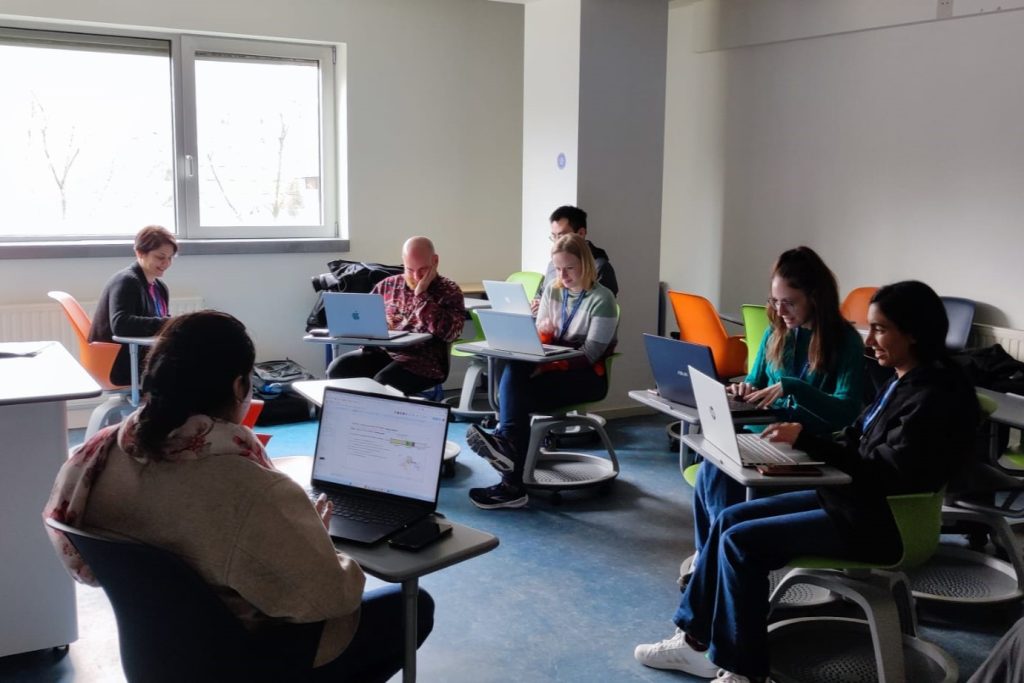
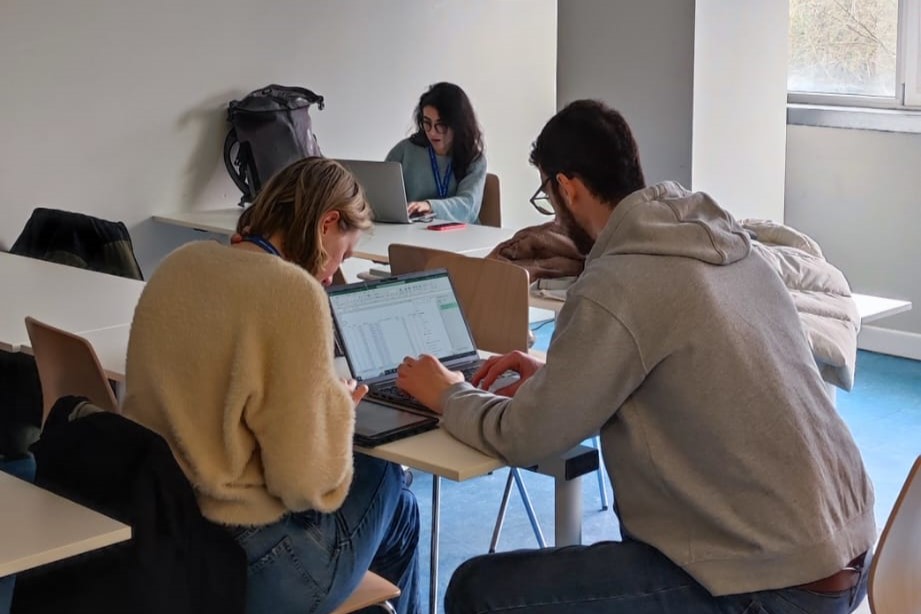
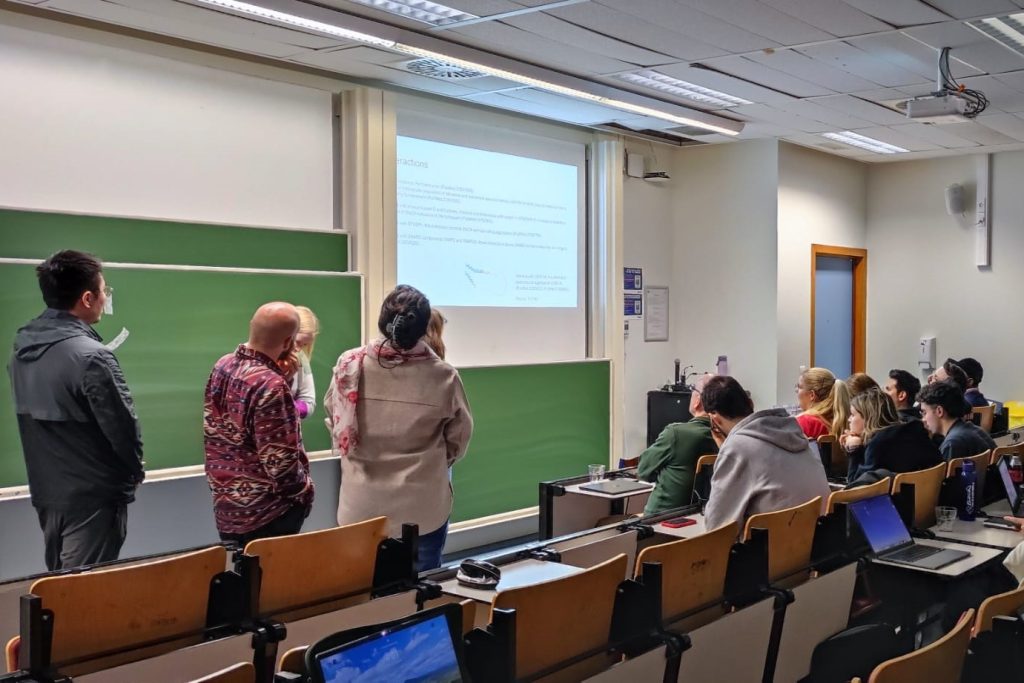
The participants also contributed to the scientific program with group presentations of their case studies. There is no better way to break the ice than a scientific discussion with Belgian beers and fries! The PhasAGE-VIB Training School also allowed the participants, the trainers, and the speakers to network and socialize during the introductory activity, the coffee breaks, at lunch, and of course, the social dinner with delicious Belgian specialities! This was a great opportunity to relax, meet old friends from previous editions of our events and make new ones.
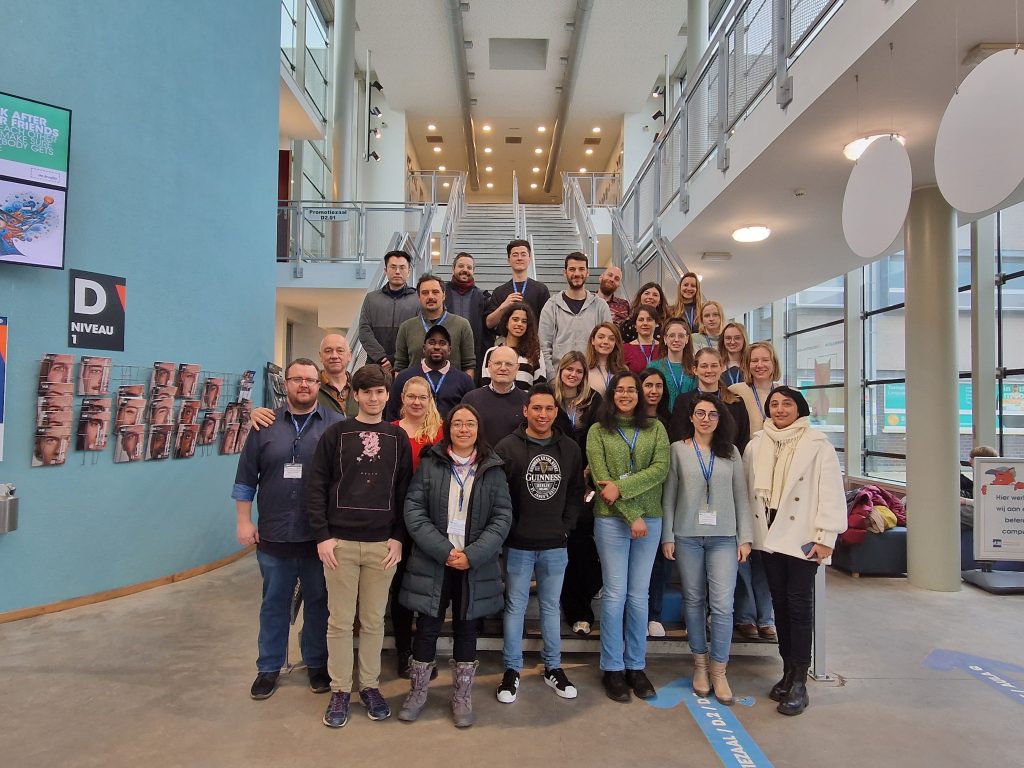
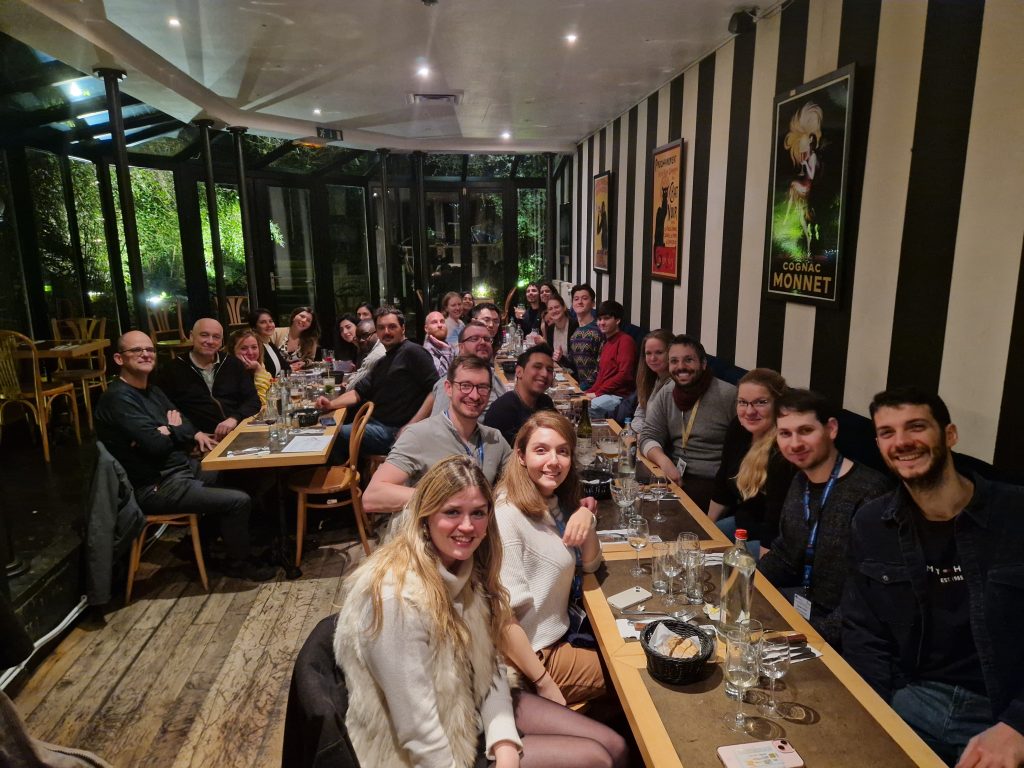
At the end, the overall training school provided trainees with invaluable hands-on experience in bioinformatics analyses, fostering a deeper understanding of protein structure and function. By integrating theoretical knowledge with guided exploration, participants are now equipped to navigate the complexities of their proteins of interest and explore avenues for therapeutic intervention.
Thank you all for attending another successful edition!
Hartelijk dank!
